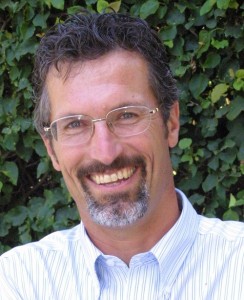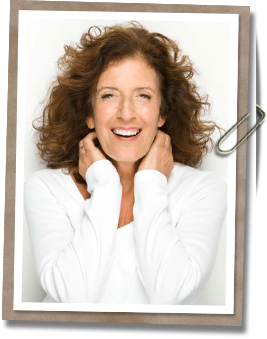
Steven Crandell courtesy photo
Between his calming Kiwi accent and his towering 6-foot-6-inch presence, working with the Nuclear Age Peace Foundation for the abolishment of nuclear weapons seems a natural fit for Steven Crandell. There’s something soothing about spending time with this former Stanford basketball team captain, journalist, biographer and fund-raising consultant, who now devotes his days to working for peace.
Leslie Dinaberg: Tell me about the Nuclear Age Peace Foundation.
Steven Crandell: The Nuclear Age Peace Foundation has been working on the abolition of nuclear weapons for 25 years and it has a great reputation. (President and founder) David Krieger is well known; he has international relationships and reputation and yet the question that always comes back is, “What do you do?”
LD: So you’ve created this DVD about nuclear weapons to help explain. What are the main things you want to communicate?
SC: I have this story of three numbers, and if you know them you can take a big step toward awareness about nuclear issues.
How many nuclear weapons are there in the world? And the answer is 26,000. Most people don’t know that. Most people are pretty surprised that it’s that many.
The second question is how many nuclear weapons are on high alert, which means they can be fired in moments? 3,500 can be fired in moments.
OK, we’ve got two numbers: 26,000 nuclear weapons and 3,500 on high alert.
How many does it take to kill a million people? One.
And I think those numbers tell the story probably better than anything. We’ve got a weapon that’s so terrible it’s impossible to imagine it being used.
LD: Now of those 26,000, how many belong to the United States?
SC: About 10,000. Russia has a few more than we do and I think it’s around 90 percent are Russian or American.
LD: You have said previously that three-fourths of Americans are against nuclear weapons. What can we do to stop them?
SC: The first thing they can do is get informed … (We have a) new local program which is Santa Barbara Peace Community, and the basic goal of that is to train peace leaders in Santa Barbara. They’ll watch our DVD, and next year we’re adding a simple quiz so you’ll have the right answers. We’ll ask people to sign a pledge that says what we want the U.S. to take leadership for de-alerting weapons and no first use, getting back to working with other nations working toward the goal of a nonproliferation act and using the money, the billions of dollars — the U.S. alone spends $6 billion a year on nuclear weapons. Another step is e-mail five of your friends and ask them to watch the DVD, that’s something you can do right now on our Web site, which is www.wagingpeace.org. And the fifth step is you give to us. The sixth step is actually coming in here … they’ll get trained on how to present things to people and also more background information about nuclear weapons. And seventh is a very important step, especially for today’s peace leaders: They’ll come up with their own individual plan for who they want to approach.
… It’s kind of like a personal journey of development, if you like, except you are developing your knowledge about nuclear weapons and your ability to actually be involved and make a difference.
LD: I understand the work obviously is very admirable, but why did you choose this particular job?
SC: I’ve got four reasons and their names are Isaac, Luke, Josette and Nathaniel, my children. And I don’t try to, I’m far from an expert on nuclear weapons, but I don’t think you have to be. I think this is a legacy issue and by that I mean it’s an issue about what do we give to our kids, what world do we leave to them.
LD: Were you actively looking to go from being a consultant for a bunch of different organizations to working for a single organization?
SC: I think that was always a temptation. I had a great, great time as a consultant with my dad, we had our little company, the Crandell Company, the highlight was of course the book (Silver Tongue), which you’ve heard a lot about, which in itself was a fund raiser. But one of the things I felt as a consultant is that … fund raising is so strongly connected to the program, and when you get people who will give the time so that you can present the case, they want to know that you know it in and out and you believe in it. I think that makes a difference. And it’s not that I didn’t believe in the other charities I was helping, but I was helping a number of them and I was a consultant. Now there’s no question what I’m about and which team I’m on, and that makes my job easier in the end because I think that’s one of the things that I do probably better than other things, which is just speak from the heart.
LD: What do you like to do when you’re not working?
SC: I play the guitar and sing. I’ve been running with my brother, Michael, who is a marathoner. I can’t run that far but just to get away at lunch and go for a run by the beach is great. That’s the advantage of Santa Barbara. And I’ve got two little kids — 2 and 5 — who I spend a lot of time parenting when I’m not working.
LD: If you could be invisible anywhere in Santa Barbara, where would you go and what would you do?
SC: The whole invisibility thing isn’t all that attractive to me so. … I guess I’ve gained a lot of humility through life in various different ways, and I have a real sense of my own clay feet, so I don’t mind being myself. There’s an acceptance that has come with that, an acceptance of my foibles and more glaring faults as well, not as an excuse, just that I’m going to disappoint people in some ways somehow. But that’s not really the point of life. This point is, and I actually said this. John Zant interviewed me, or Mark Patton, when I was 18 and I was going away on a basketball scholarship and the headlines said, “He just wants to enjoy life.” … This is still me. I want to enjoy my life.
Vital Stats: Steven Crandell
Born: Feb. 15, 1959 in Harrisburg, Pa. Moved to Santa Barbara in 1960
Family: Wife Kathleen, children Nathaniel, 2; Josette, 5; Luke, 14; and Isaac, 18
Civic Involvement: “I do my best to my limited capability as a father and I think that, in the end, fathers and mothers are the key to community health. We don’t all have children but we all are children, all sons and daughters, and so that relationship is the key and often colors the relationships we choose for ourselves, how we approach life. My thought is if I’m going to invest time in anything I’m going to invest time in my kids.”
Professional Accomplishments: Author of Silver Tongue, about the life of his father, Larry Crandell; producer of the national news in New Zealand for 15 years; director of development/public affairs, the Nuclear Age Peace Foundation
Originally published in Noozhawk on December 24, 2007.




